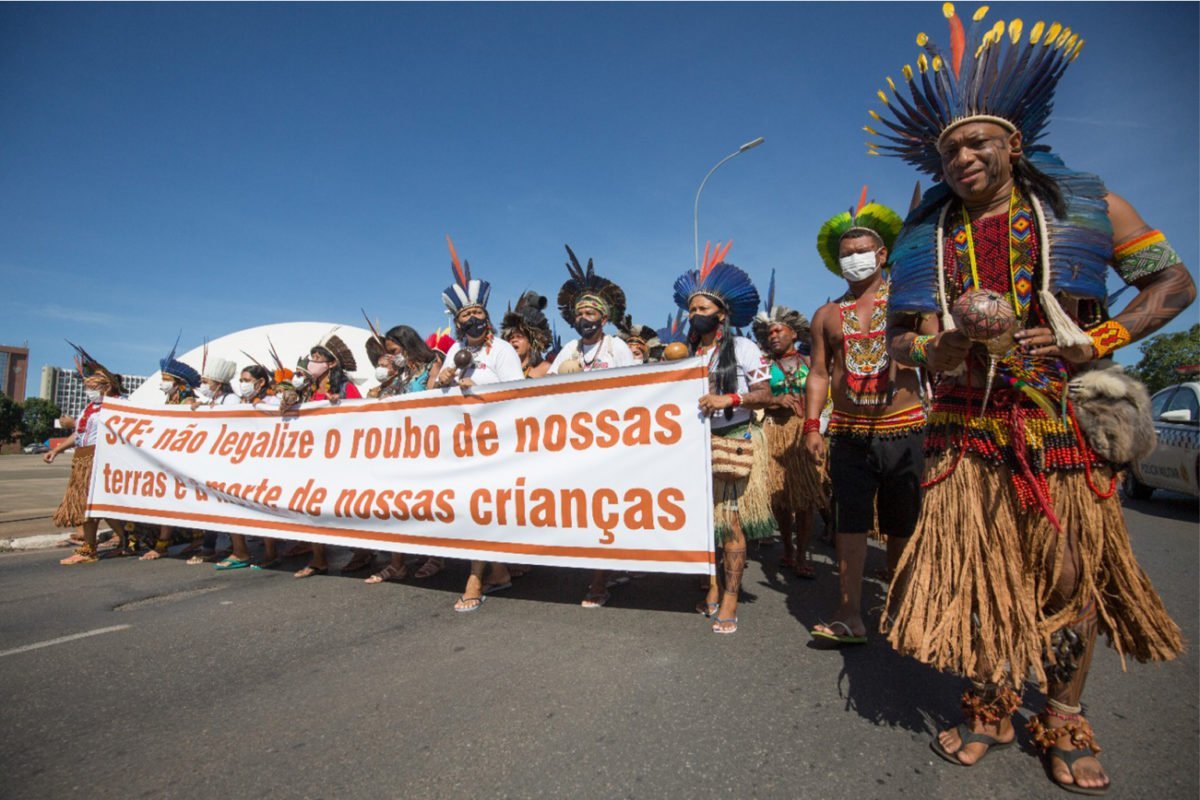
Brazil’s Supreme Federal Tribunal on Sept. 21 struck down the spurious thesis behind a legislative proposal advancing in the country’s Congress, which would impose a marco temporal or “time limit” on indigenous land recovery claims. The marco temporal law would nullify any indigenous group’s claim to traditional lands that they weren’t physically occupying on Oct. 5, 1988, the day of the enactment of Brazil’s Constitution, which for the first time recognized native peoples’ territorial rights. Instead, these lands would be considered the property of those currently in occupancy, or of the state. The thesis ignores the forced displacements that occurred during Brazil’s dictatorship in the generation before 1988, as well as the nomadic lifeways of some indigenous groups. Environment Minister Marina Silva declared the high court’s annulment of the marco temporal thesis an “act of justice.”
The case stemmed from one such forced displacement in the state of Santa Catarina. Members of the Xokleng people petitioned the state government for restitution of their lands, of which they had been dispossessed by tobacco farmers. The state government had refused them, on the basis that they were not in occupancy of the land in 1988. The high court ruling does not stop the marco temporal bill from advancing in Congress, but establishes precedent for its overturn if it should still pass. (Mongabay, Jurist, Al Jazeera)
Photo via Twitter





Lula vetoes parts of bill limiting indigenous land rights
Brazilian President Luiz Inacio “Lula” da Silva on Oct. 20 vetoed multiple articles of Bill 2903/2023, which aimed to establish a time frame for the demarcation of indigenous lands. Bill 2903/2023 was approved by the Federal Senate on Sept. 27. Reacting to the veto, the Federal Public Ministry’s Chamber of Indigenous Populations & Traditional Communities released a statement affirming their stance against changing the legal regime for demarcating indigenous lands through ordinary law. The Chamber of Indigenous Populations and Traditional Communities stressed that fundamental rights of indigenous peoples are permanent and cannot be altered without amending the Constitution. (Jurist)